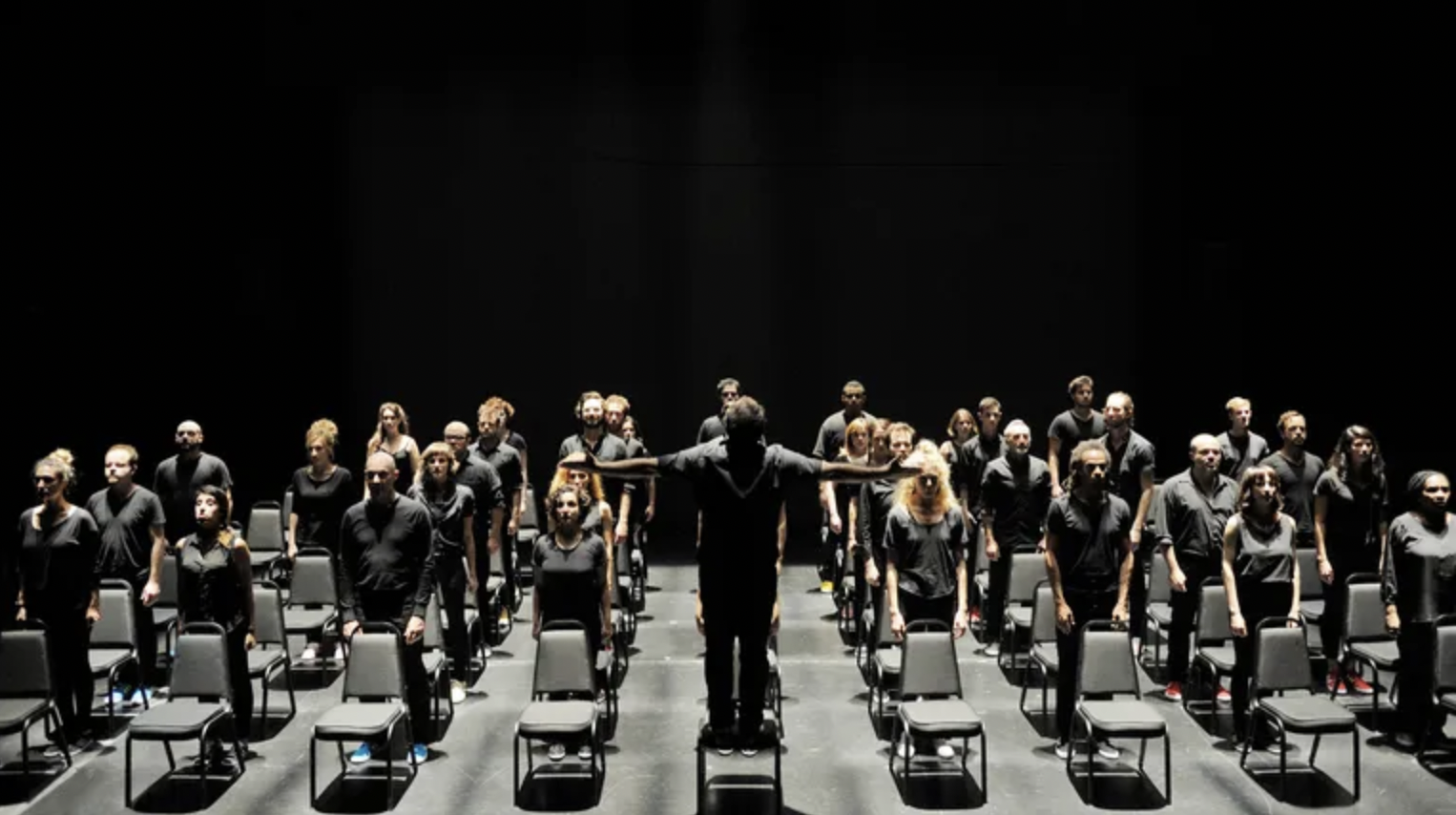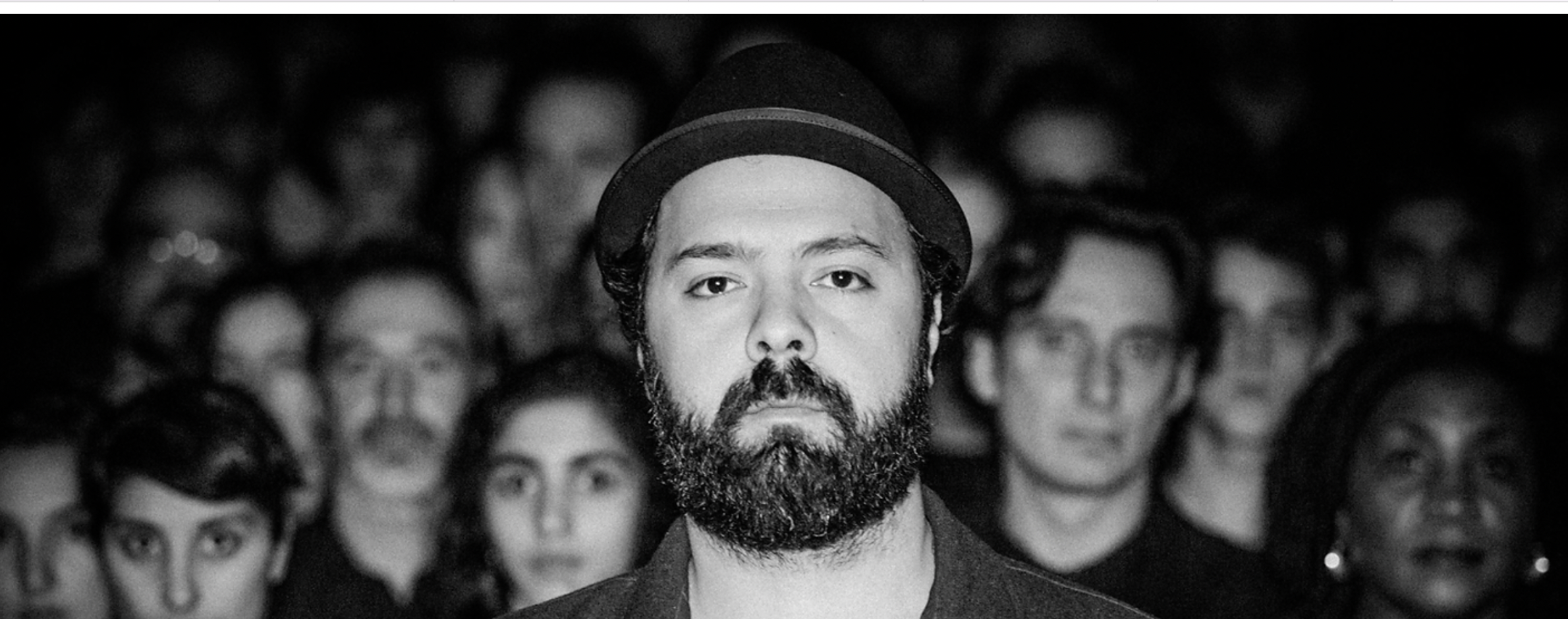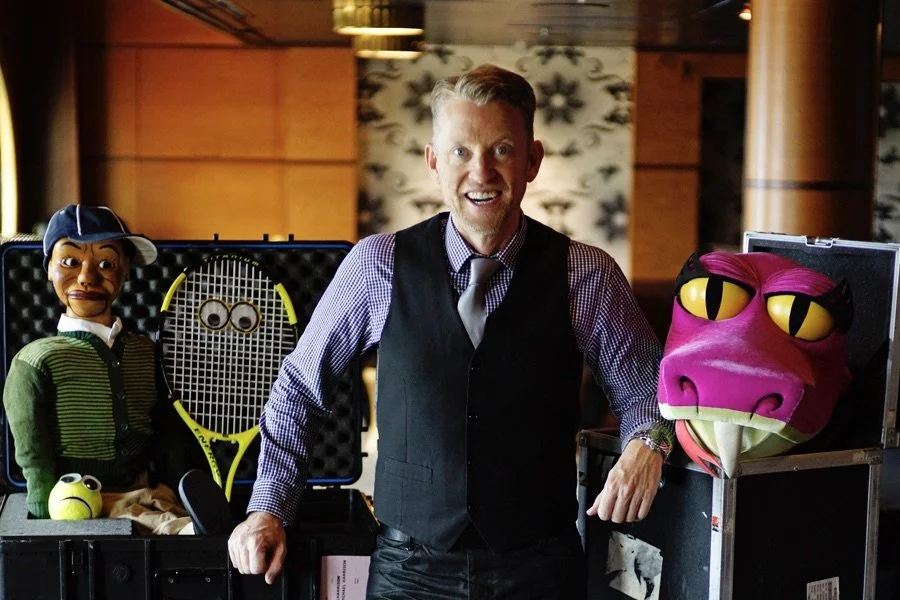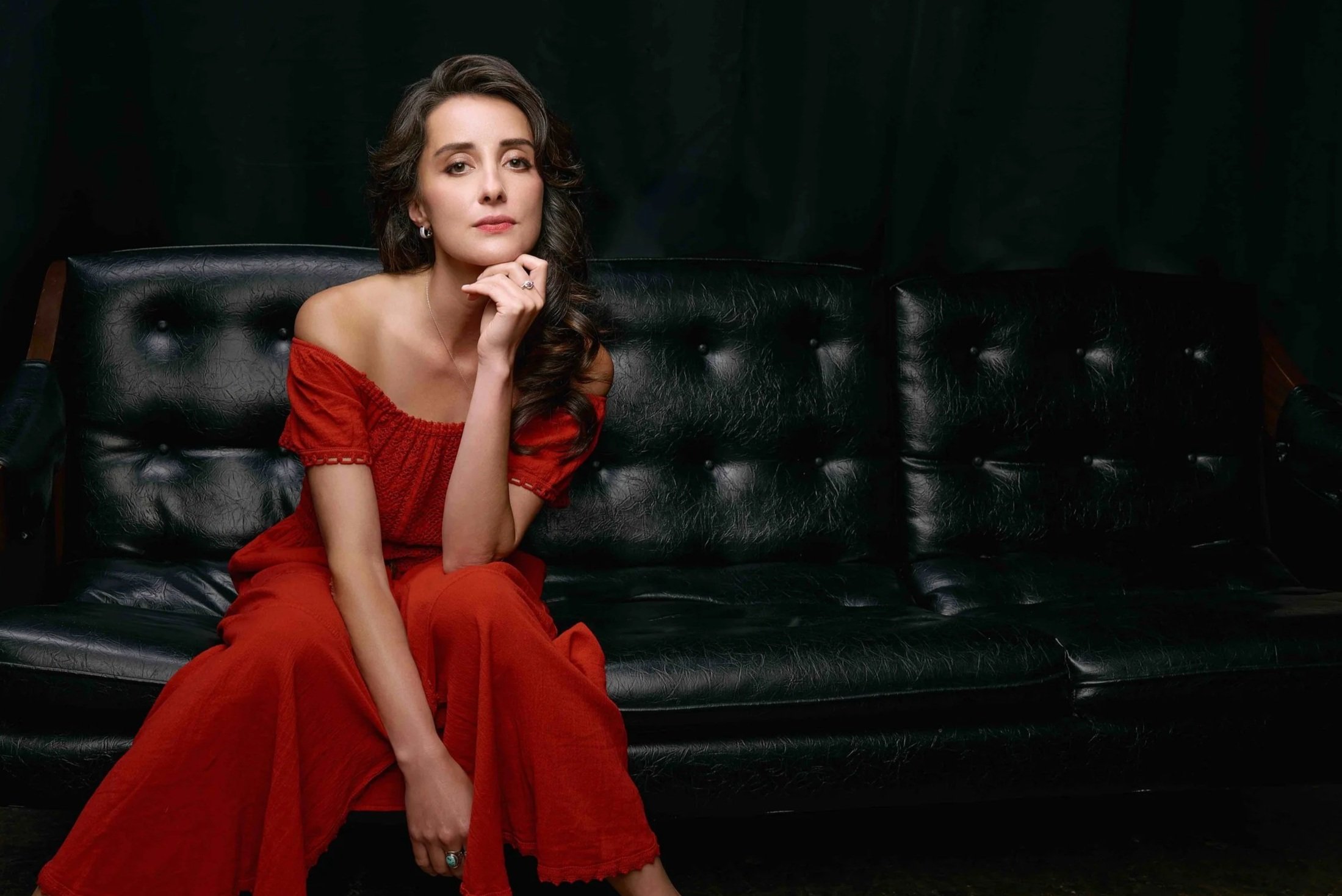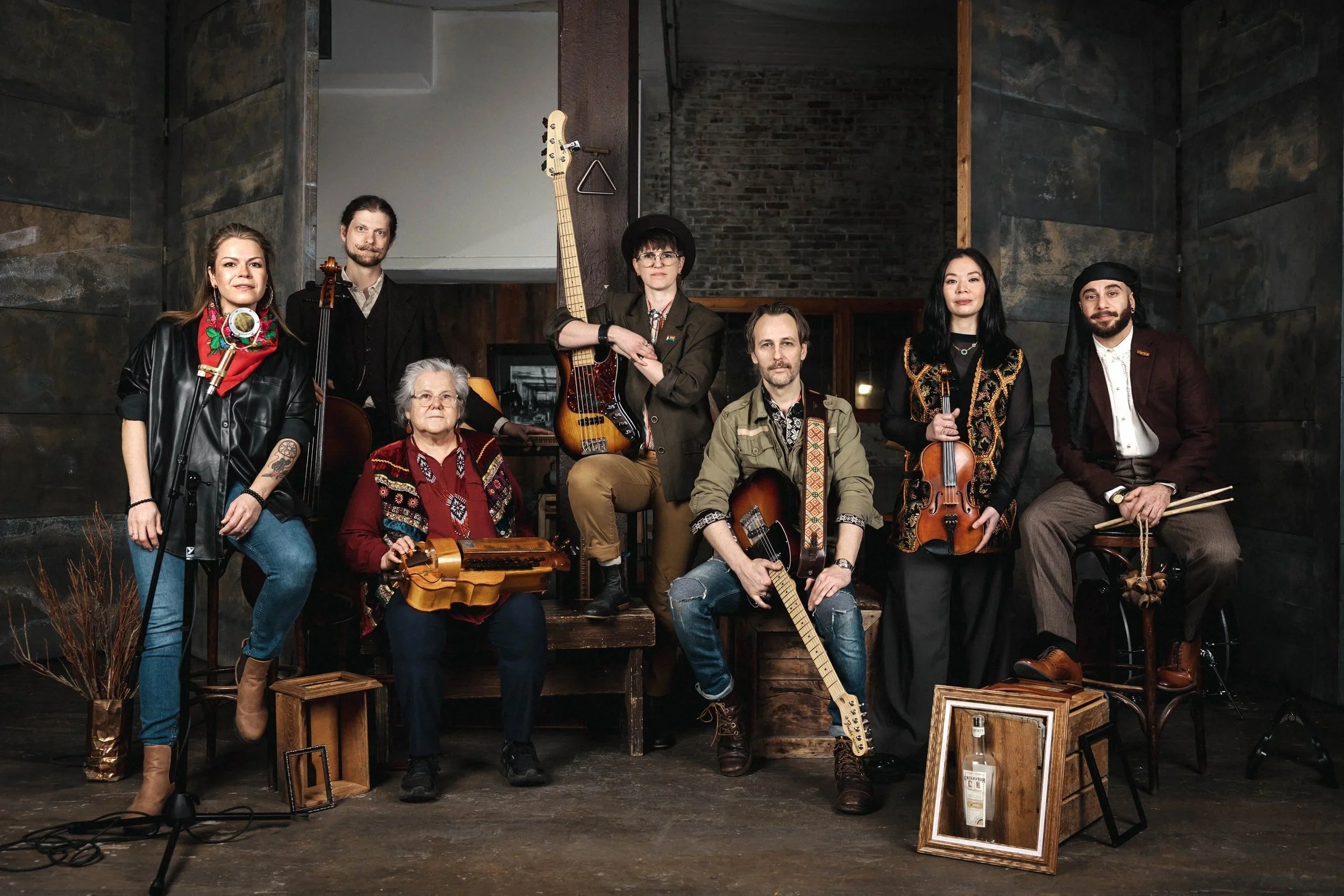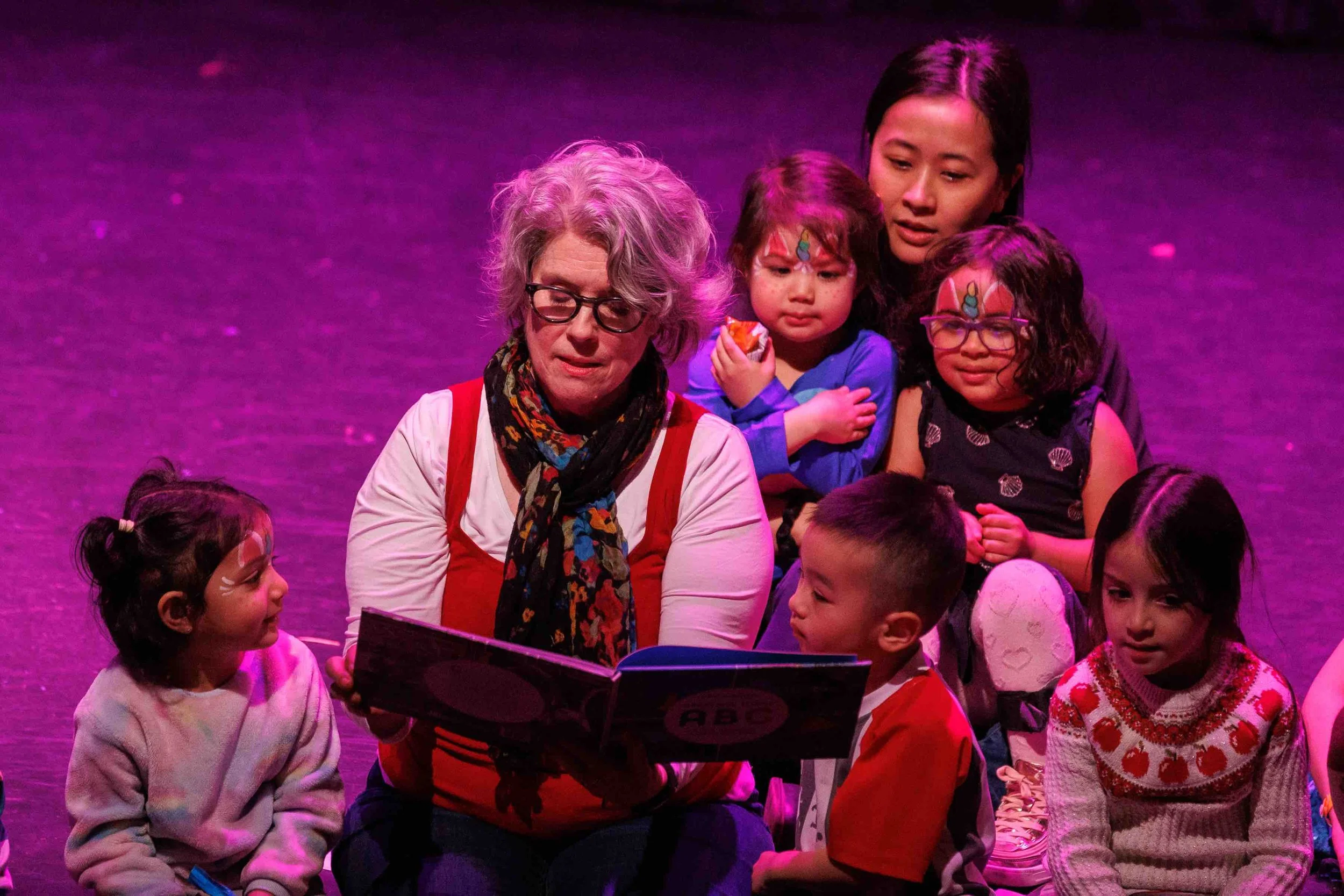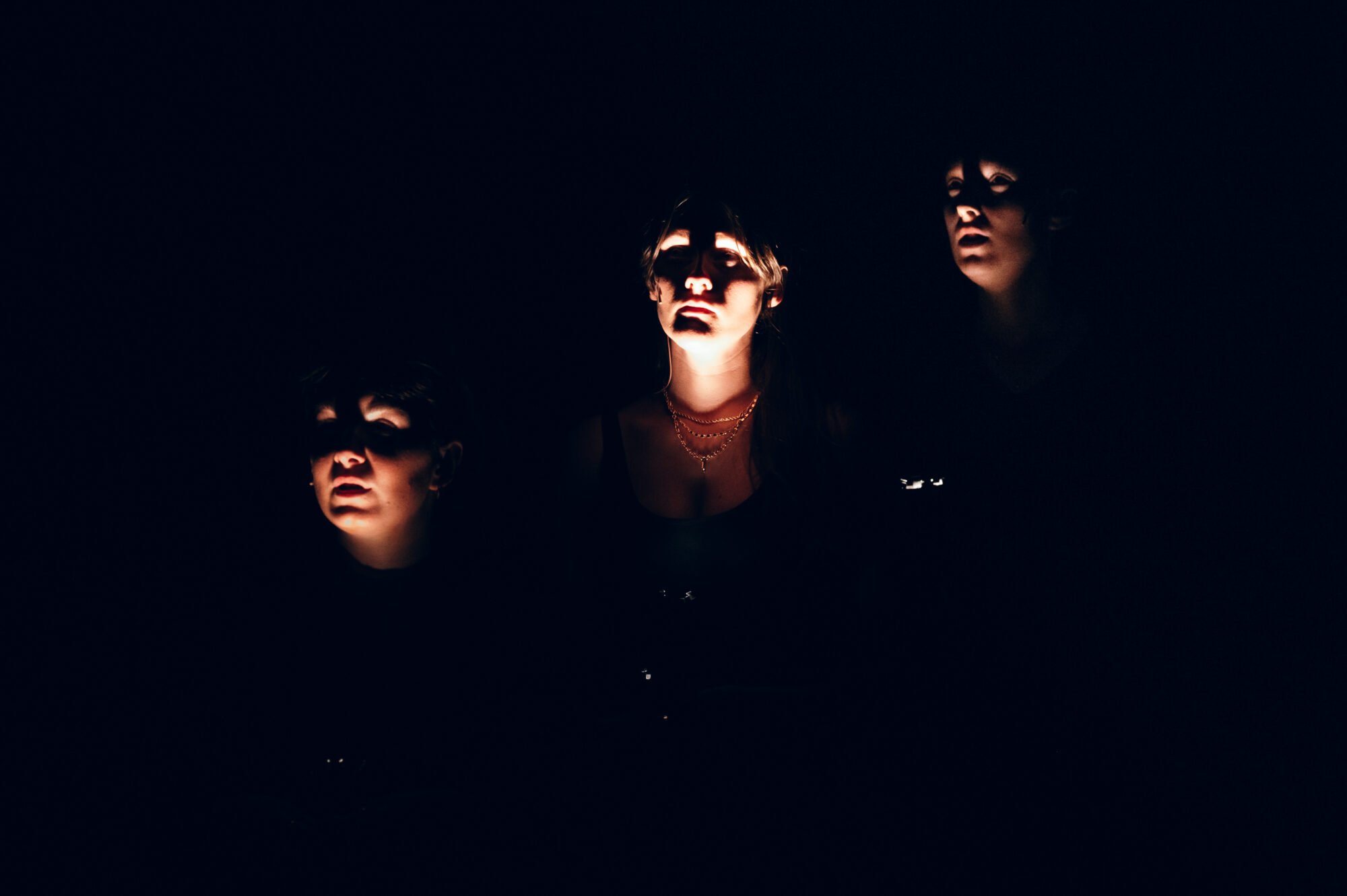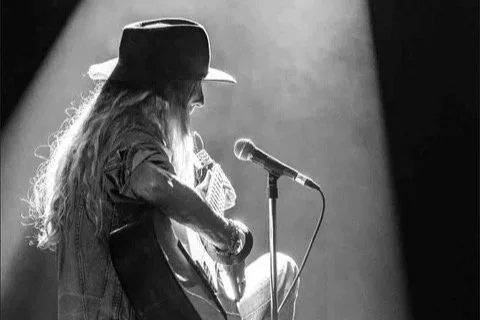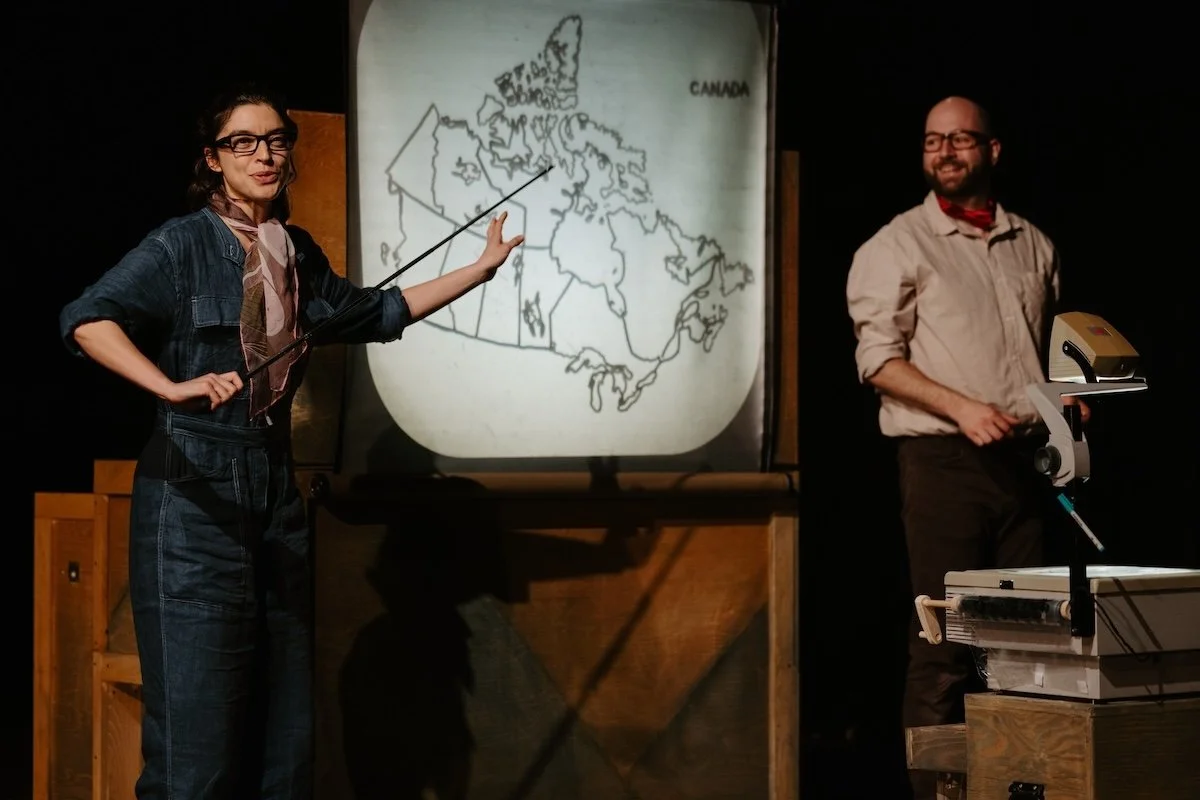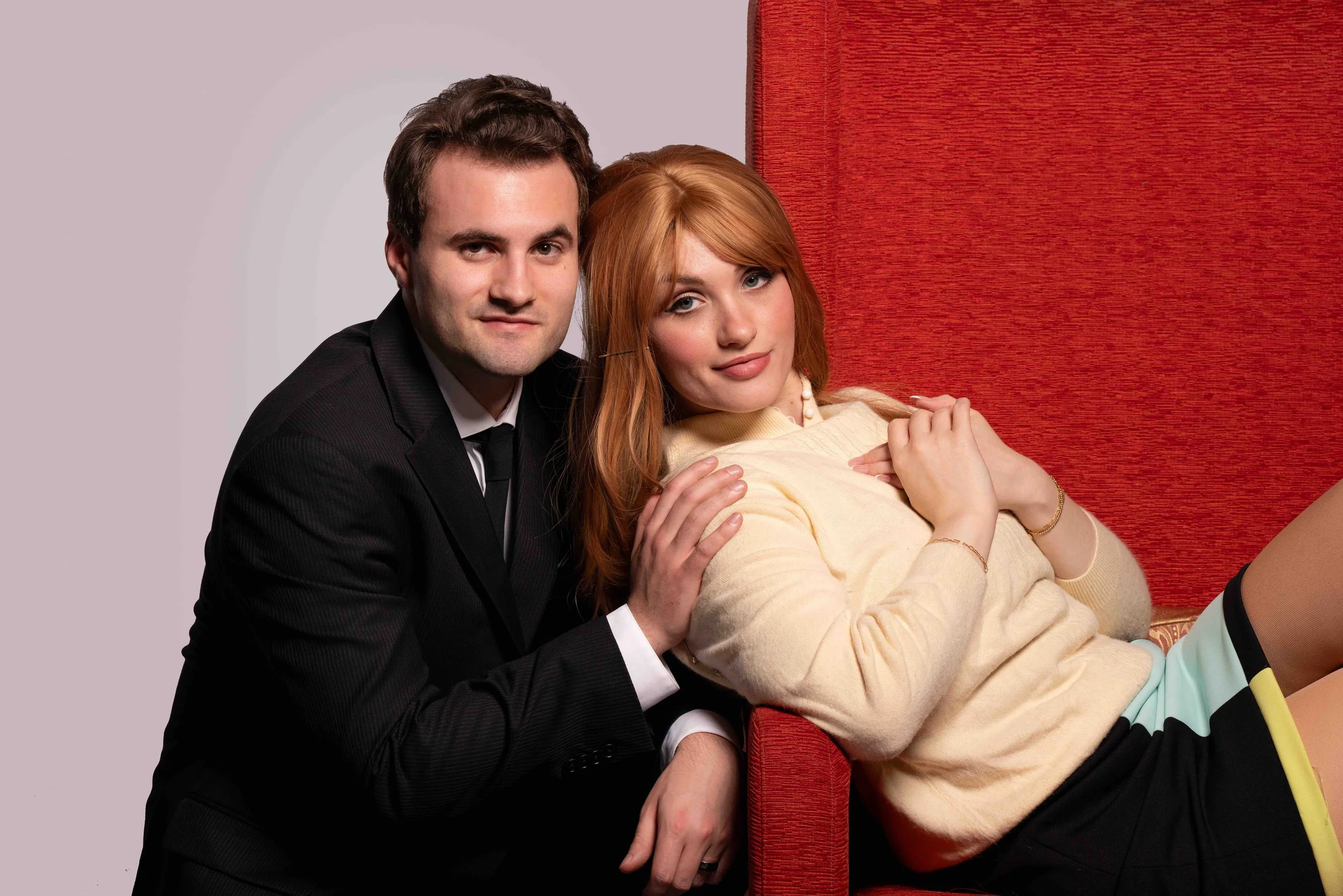With Un.Deux.Trois, Mani Soleymanlou brings the largest production to date in the history of Franco-Canadian theatre to Vancouver
Thirty-six French-speaking performers take a deep dive into identity, probing what it means to be “Franco-Canadian”
Un.Deux.Trois.
Théâtre la Seizième presents Un.Deux.Trois. on November 11 at 6 pm and on November 12 at 2 pm at the Scotiabank Dance Centre.
THEATRE ARTIST Anaïs Pellin grew up in Brussels, recently became a Canadian citizen, and lives in Vancouver, where she’s an active member of the local French community. Her identity as a Francophone living in an anglophone province, she says, is complicated.
“When I go back to Belgium, my family says to me I seem more and more Canadian,” Pellin says in a phone interview with Stir. “But I’m not feeling completely French-Canadian; I’m kind of in between both places, like a no man’s land. I’m starting to have a mix of both of these cultures.
“And in the west, we are far away from Quebec and feeling a little lost; other French-Canadians, like those in New Brunswick and Ontario, are that much closer to Quebec,” she says. “I’m from Europe and never had to fight for my language or fight to continue to work in French before.”
The complexity of identity is at the very heart of Un.Deux.Trois, a ground-breaking trilogy by Quebecois playwright Mani Soleymanlou. National in scope with nearly 40 performers, including Pellin, it is the largest production to date in the history of Franco-Canadian theatre.
On one hand, the work has been over a decade in the making, with Un premiering in 2010, Deux in 2014, and Trois in 2017. But in effect Un.Deux.Trois goes back much further than that.
Born in Tehran early on in the Islamic Revolution and in the middle of the Iran-Iraq war, Soleymanlou has lived in Paris, Toronto, Ottawa, and Montreal. He has been contemplating issues related to identity, culture, and heritage his whole life. He has watched society grow ever more divided, punctuated by events like demonstrations in Montreal in 2014 against colonialism, racism, and the proposed Quebec Charter of Values and the 2015 Charlie Hebdo terrorist attack. Ultimately, he wanted to take a deep dive deep into what it ultimately means to be Francophone in Canada today.
“It talks about community, about living together; ‘What is being French in Canada?’” Soleymanlou says in French in a Zoom interview with Stir. “What is our collective Francophone Canadian identity? Let's think about what it is to be Franco-Canadian. What it is to be a man, a woman, non-gender, an immigrant? What is a land, a nation, a language that has disappeared? How do we define ourselves in all this? The questioning of identity has changed beaucoup, beaucoup, beaucoup in the last few years.
“Sometimes we freeze and we want to say it is black or white, when it is not,” he adds. It’s complex and messy. It’s very selfish to do, but this is a project that allows me to take the pulse of our society.”
Soleymanlou, a 2008 graduate of the National Theatre School of Canada, founded the Montreal-based theatre company Orange Noyée in 2011 and a decade later took on the role of artistic director of NAC French Theatre. His solo show ZÉRO played at Theatre La Seizieme last season, digging into his own background after learning, as an adult, that his father was once taken by Revolutionary Guards in Iran. (Un.Deux.Trois is an Orange Noyée creation in partnership with le Théâtre français du Centre national des Arts, le Théâtre du Nouvel-Ontario, le Théâtre français de Toronto, Duceppe, Le Théâtre du Trident, Le Théâtre l’Escaouette, le Théâtre populaire d’Acadie, le Théâtre la Seizième, and le Théâtre Cercle Molière.)
Mani Soleymanlou.
It's important for the artist to ask questions that don’t have simple answers in his work.
“For me, theatre is political,” Soleymanlou says. “For me, theatre is a reflection of our society. Too often we spend our time separating us, dividing us: ‘You’re left, you’re right.’ ‘Are you gay or straight?’ ‘Are you Muslim?’ For me, theatre allows me to try to stitch this social fabric together. I have the privilege to use this platform, to answer these questions—or to try to answer these questions. I want to bring theatre back to its mission as an agora. It’s a space of discussion. It’s like the public square.”
In writing Un.Deux.Trois, Soloeymanlou collaborated with performers, who each shared their lived experiences and use their own stories as jumping-off points to develop characters and storylines. While the subject matter may be challenging, Soleymanlou emphasizes the work is neither heavy nor dark. He likes to take a light-hearted approach to things; he incorporates self-deprecating humour in his own lines and wants the cast and audience members to have fun. There’s a theme of hope, too.
He’s admittedly curious about how the response to the show in B.C. may differ from that in Manitoba, say, or Alberta or Quebec. So far, he has heard from viewers that the work goes by quickly even though it clocks in at about four-and-a-half hours, with two intermissions.
“I say at the beginning of the show in a microphone, as a joke, that the play tonight is of indeterminate duration, between four hours and the rest of your life,” Soleymanlou says, adding that the topics explored remind him of the saying ‘The more you know, the more you realize you don’t know. “I can’t talk about racism, identity, language, Indigeneity, doubt, acceptance, and hate, in less than that. It’s been 12 years since I’ve been working on this and I’m still not done.”


